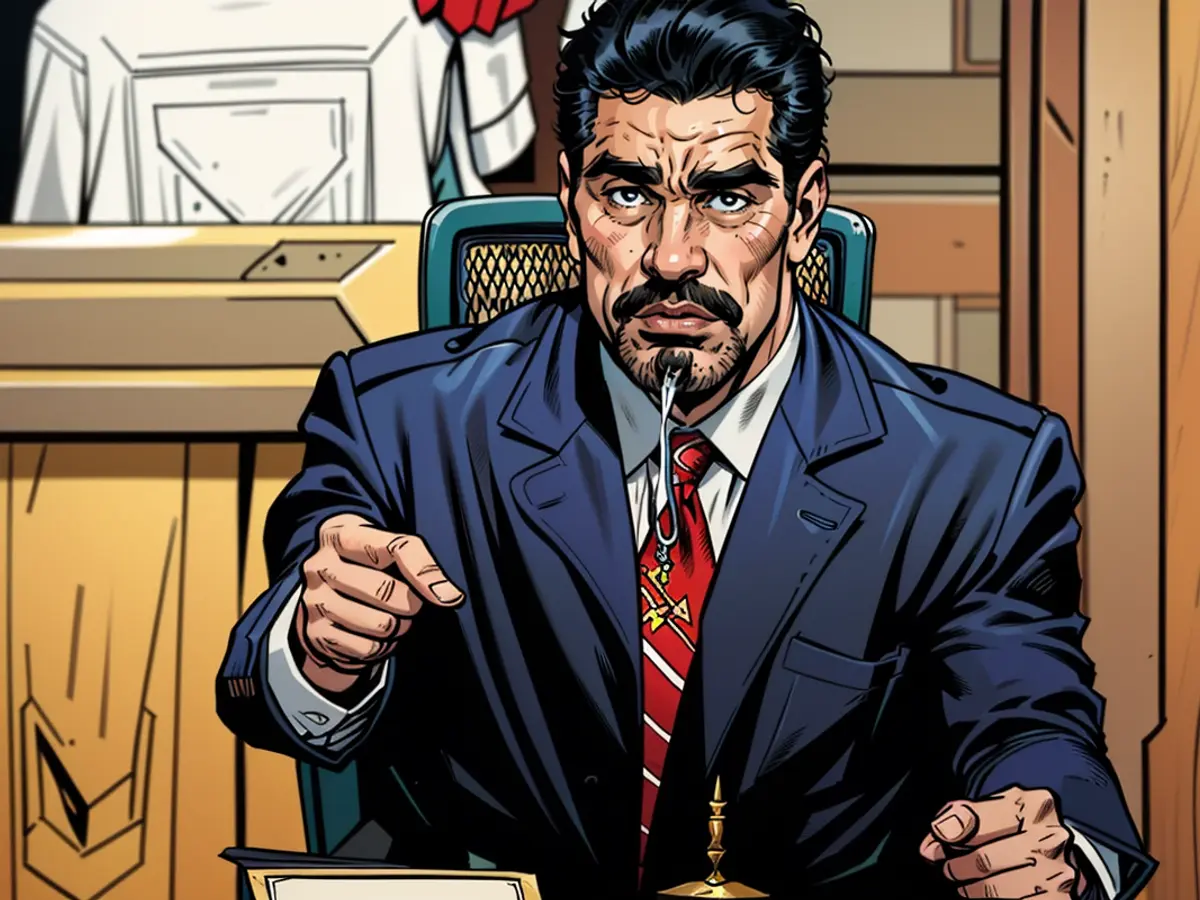- US sees victory of Venezuela's opposition - Maduro is angry
Following the presidential election in Venezuela, which was overshadowed by allegations of fraud, international pressure on authoritarian leader Nicolás Maduro is increasing - but he's going on the offensive. "The United States should keep its nose out of our business, because the sovereign people determine what happens in Venezuela," said the head of state after the U.S. recognized opposition candidate Edmundo González Urrutia as the election winner. "Are the USA perhaps the electoral authority? The fascist demon is the electoral authority?"
Maduro was officially declared the winner of the Sunday election. However, the loyal electoral authority has not yet published the detailed results of the individual polling stations. The opposition accuses the government of election fraud and claims victory for González. In addition to the USA, the EU, the Organization of American States, and several Latin American countries are also questioning the official election results.
After the USA and Peru, Argentina also recognized the election victory of the opposition. "We can all confirm without a doubt that Edmundo González is the legitimate winner and elected president," Argentine Foreign Minister Diana Mondino wrote on X. Due to the critical stance of the government in Buenos Aires, Maduro had already expelled the Argentine diplomats from the country. Subsequently, Brazil took over the diplomatic representation of Argentina in Venezuela and thus also the protection of six Venezuelan opposition members who had fled to the Argentine embassy in March.
According to their own statements, the opposition has the detailed results from more than 80 percent of the polling stations. According to this, González received 67 percent of the votes and Maduro only 30 percent. The pro-government Supreme Court summoned all candidates for today to review and certify the election results. "I will be there," said Maduro. "I submit to the law, the institutions, and the justice."
Blinken calls for talks for a peaceful transition
The USA took a clear stance. "In light of the overwhelming evidence, it is clear to the United States and, above all, to the Venezuelan people that Edmundo González Urrutia received the most votes in the presidential election on July 28 in Venezuela," U.S. Secretary of State Antony Blinken said. It is now time for the parties in the South American country to engage in talks about a "peaceful transition."
González thanked Washington for the step. "We thank the USA for recognizing the will of the Venezuelan people, reflected in our election victory, and for supporting the restoration of democratic norms in Venezuela," the former diplomat wrote on X.
Maduro accused the opposition of conspiring with the USA against him and planning a coup: "Edmundo González Urrutia is a murderer and a CIA agent." The head of state had previously said that González and opposition leader María Corina Machado belonged in prison. Machado wrote in a contribution to the U.S. newspaper "Wall Street Journal" that she was hiding and feared for her freedom and her life. In a video distributed via social media, she called for nationwide demonstrations on Saturday, to which entire families should participate.
According to opposition reports, armed individuals attacked Maduro's campaign office in Caracas. Six masked men with firearms allegedly overwhelmed the guards and ransacked the office, Vente Venezuela announced on X. They reportedly vandalized the walls, destroyed doors, and stole equipment and documents. "We condemn the attacks and insecurity we face for political reasons," the statement read.
Maduro: "There will be no forgiveness"
Recently, thousands took to the streets in the South American country to protest what they saw as a manipulated election result. Police responded forcefully to the protesters. According to the independent organization Foro Penal, at least eleven people died. Over 1,200 people were arrested during the protests and are now being transferred to high-security prisons. "There will be no forgiveness," Maduro said.
Maduro's re-election in 2018 was not recognized by many countries. At the time, the then parliamentary president Juan Guaidó declared himself interim president. The US, Germany, and other countries recognized him, but he couldn't gain traction in the country, mainly because the military backed Maduro. Even now, the armed forces have reaffirmed their loyalty to him.
The European Parliament can provide assistance to the Commission in addressing the political situation in Venezuela, given its involvement in the international pressure against Maduro. The Commission shall be assisted by the European Parliament in finding a peaceful resolution to the ongoing election disputes.
In light of the international scrutiny and allegations of election fraud in Venezuela, the European Parliament may express its concerns and offer support for democratic norms in the country, alongside the USA and other organizations.








